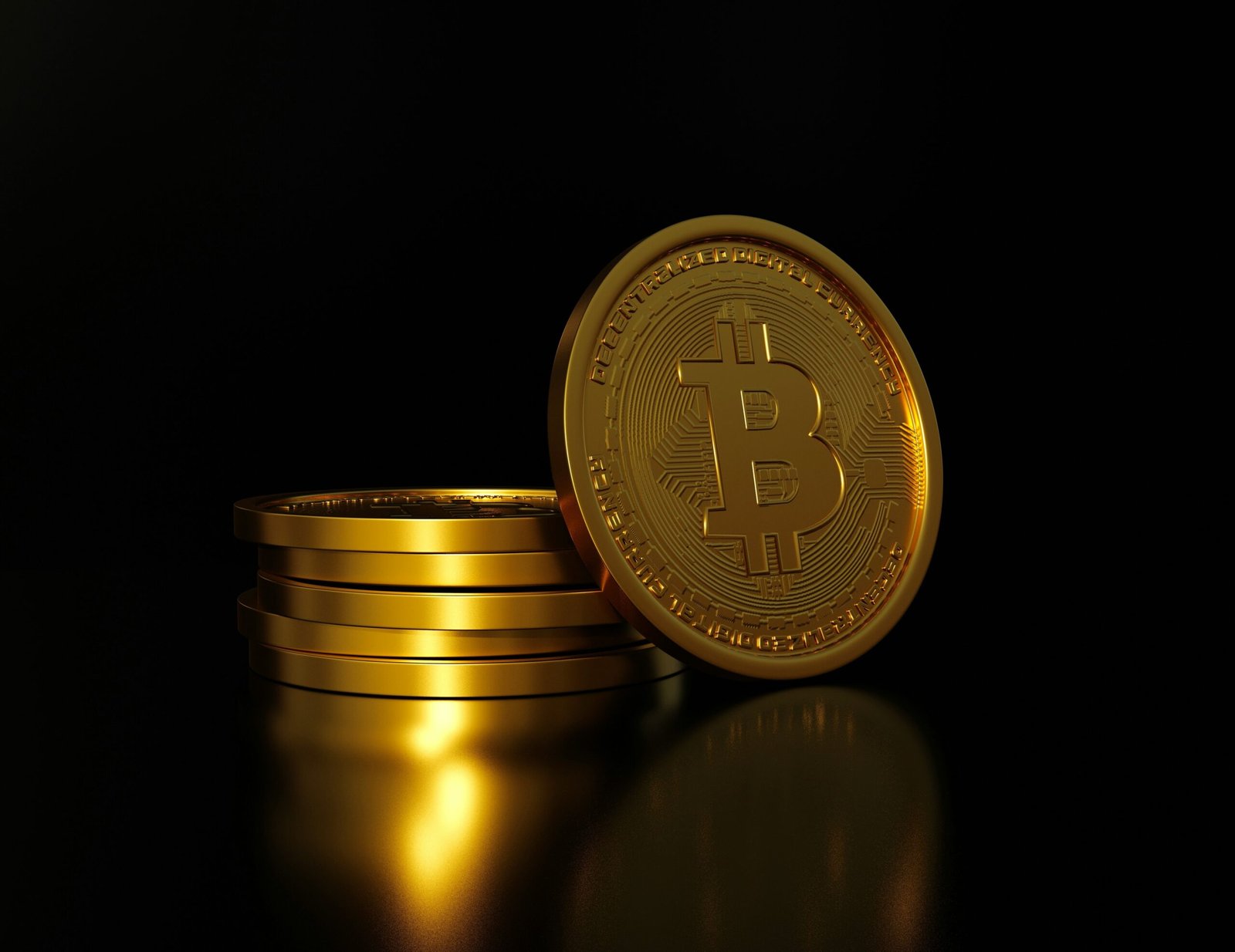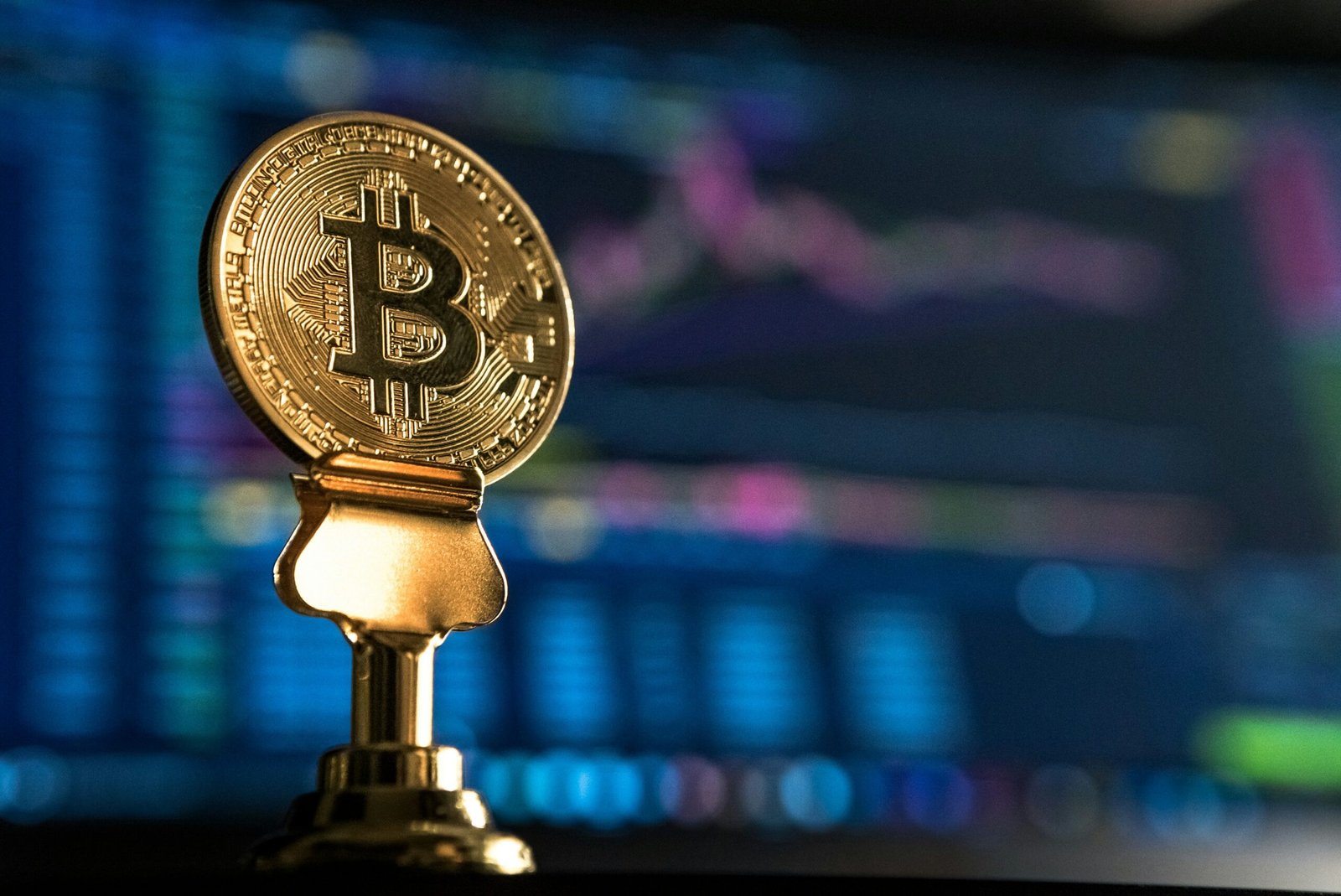The Rise of Decentralized Finance (DeFi): Why It Matters
 Photo by Mariia Shalabaieva on Unsplash
Photo by Mariia Shalabaieva on Unsplash Introduction to Decentralized Finance (DeFi)
Decentralized Finance, commonly referred to as DeFi, represents a paradigm shift within the financial landscape, characterized by the application of blockchain technology to recreate and innovate traditional financial services. At its core, DeFi aims to eliminate intermediaries, such as banks and other financial institutions, that have typically managed transactions and services. This model allows for direct interaction between parties, leading to enhanced efficiency and reduced costs.
The foundational principle of DeFi lies in its accessibility. Unlike traditional finance, which can often be exclusive and subject to regulatory constraints, DeFi platforms are typically open-source and available to anyone with internet access. This inclusivity embodies a commitment to democratizing financial services, enabling users globally to borrow, lend, trade, and invest without the barriers imposed by conventional financial institutions.
Central to the functionality of DeFi is blockchain technology, which serves as a decentralized ledger that records transactions across a network of computers. By using smart contracts—self-executing contracts with the terms of the agreement directly written into code—DeFi applications ensure transparency, security, and automation in financial processes. These smart contracts eliminate the need for human intervention, further reducing the risk of fraud and error.
DeFi encompasses a variety of financial services, ranging from lending and borrowing platforms to decentralized exchanges (DEX), stablecoins, and yield farming initiatives. Each application builds upon the transparent and secure nature of blockchain to create financial products that are not only resilient but also highly innovative. As DeFi continues to evolve, understanding its core principles and technological underpinnings is essential for grasping its significance in today’s economic landscape.
The Evolution of the Financial System
The financial system has undergone significant transformations over the past few decades, transitioning from traditional banking to the innovative landscape of decentralized finance (DeFi). This evolution can be traced through several key milestones that have reshaped our understanding of money, value, and financial transactions.
One crucial turning point was the creation of Bitcoin in 2009 by an anonymous individual or group known as Satoshi Nakamoto. Bitcoin introduced the concept of a peer-to-peer digital currency, allowing users to conduct transactions without the need for intermediaries like banks. This revolutionary approach laid the groundwork for the broader application of blockchain technology in various financial services.
Following Bitcoin’s emergence, the introduction of smart contracts marked another milestone in the evolution of the financial system. These self-executing contracts, coded on blockchain platforms, enable agreements to be automatically enforced without relying on trusted third parties. This innovation has significantly increased efficiency and transparency in financial transactions, further paving the path for decentralized applications.
The Ethereum platform, launched in 2015, played a pivotal role in facilitating the development of DeFi projects. Unlike Bitcoin, which primarily serves as a digital currency, Ethereum features a more flexible architecture that allows developers to create decentralized applications (dApps) and smart contracts. This new environment enabled a variety of financial services to flourish outside traditional banking systems, including lending, borrowing, and trading platforms that operate in a trustless manner.
As digital currencies gained traction and the frameworks for decentralized finance matured, traditional financial institutions began to recognize the potential benefits and efficiencies associated with these innovations. The rise of DeFi not only exemplifies the ongoing evolution of the financial system but also highlights a shift towards greater inclusivity and democratization of financial services.
Key Features of DeFi
Decentralized Finance, often referred to as DeFi, is marked by several key features that set it apart from traditional financial systems. These characteristics not only enhance user experience but also redefine how financial services are accessed and utilized. One of the primary attributes of DeFi is decentralization. Unlike conventional finance, which typically relies on intermediaries like banks and financial institutions, DeFi operates on decentralized networks. This minimizes the control exerted by a single entity and reduces the risks associated with central points of failure.
Another significant feature is transparency. Transactions on DeFi platforms are recorded on public blockchains, allowing anyone to verify and review transactions. This level of openness fosters trust among users, as each transaction’s history is immutable and easily traceable. Additionally, transparency encourages accountability within the system, as it allows users to inspect the smart contracts and protocols governing their interactions.
Accessibility is also a hallmark of DeFi. It removes barriers that often exist in traditional finance, enabling anyone with an internet connection to participate in various financial activities, including lending, borrowing, and trading. This inclusivity is particularly beneficial in regions where access to banking services is limited, allowing individuals to take part in the global economy.
Another essential aspect is permissionlessness. DeFi platforms operate without the need for permission from a centralized authority, meaning users can engage in financial activities without intermediaries. This permits not only greater freedom but also facilitates innovation as developers can build and integrate new financial solutions seamlessly.
Lastly, programmable money is a defining feature of DeFi. Utilizing smart contracts, users can automate financial transactions, making processes more efficient and reducing the likelihood of human error. This capability allows for the creation of complex financial instruments that can be executed based on specific conditions, enhancing customization and flexibility in personal finance management.
Major DeFi Applications and Protocols
The decentralized finance (DeFi) ecosystem has experienced remarkable growth, giving rise to a variety of applications and protocols that empower users to engage with financial services without intermediaries. Among the most significant applications are Automated Market Makers (AMMs), which facilitate the trading of digital assets through liquidity pools instead of traditional order books. AMMs allow users to trade assets directly against a pool of funds, thus ensuring that liquidity is readily available, which dramatically enhances trading efficiency within the DeFi landscape.
Another critical component of the DeFi ecosystem is Lending and Borrowing platforms. These protocols allow users to lend their assets to others in exchange for interest or borrow funds by providing collateral. By utilizing smart contracts, these platforms operate transparently, ensuring that all transactions are secure and trustless. This democratizes access to credit and encourages increased participation in the financial system, particularly for those who may be excluded from traditional banking services.
Yield Farming is an innovative strategy that attracts investors seeking to maximize returns on their crypto assets. By providing liquidity to various DeFi protocols, users can earn rewards in the form of additional tokens. This competitive nature of yield farming plays a pivotal role in enhancing liquidity across DeFi applications and promoting a dynamic ecosystem with varying interest rates and rewards, ultimately fostering a robust financial landscape.
Decentralized Exchanges (DEXs) have transformed the way individuals trade cryptocurrencies. Unlike centralized exchanges, DEXs allow users to trade assets directly from their wallets, reducing the risk of hacks and enhancing privacy. DEXs use smart contracts to execute trades, ensuring transparency and security. Together, these DeFi applications and protocols have created a thriving new financial ecosystem, paving the way for future innovations and solutions in the world of finance.
Benefits of Decentralized Finance
Decentralized Finance (DeFi) is revolutionizing the way individuals and institutions interact with financial systems, presenting numerous benefits that are transforming traditional financial paradigms. One of the most significant advantages of DeFi is the increased financial inclusion it offers. By eliminating intermediaries, DeFi platforms enable anyone with internet access to participate in financial services, regardless of geographical location or economic standing. This democratization of finance ensures that underserved populations can access crucial services such as lending, borrowing, and trading.
Another key benefit of DeFi is the reduction of transaction costs. Traditional financial transactions often involve substantial fees stemming from intermediaries, regulatory processes, and operational expenses. DeFi platforms utilize blockchain technology to facilitate peer-to-peer transactions, significantly lowering costs. As a result, users can allocate more resources toward their financial goals rather than incurring fees associated with conventional banking systems.
Moreover, DeFi provides a unique opportunity to earn interest on assets without the barriers characteristic of traditional banking. Through mechanisms like liquidity pools and yield farming, users can generate income on their holdings. This approach not only incentivizes saving but also promotes the efficient allocation of capital within the ecosystem. As users engage with DeFi, they contribute to the fluidity and availability of resources in the market.
Furthermore, the DeFi space serves as an incubator for innovation and disruption. As developers experiment with smart contracts and decentralized applications, new financial products and services emerge, benefiting users with features like instant settlements and customizable financial instruments. This burgeoning environment not only enhances user experience but also fosters competition, driving improvements across the broader financial sector.
Challenges and Risks Associated with DeFi
Decentralized Finance (DeFi) has rapidly gained traction due to its potential to revolutionize the traditional financial system. However, alongside the promising advantages, several challenges and risks warrant careful consideration. One of the most significant issues is the vulnerability of smart contracts. These self-executing contracts are foundational to DeFi’s infrastructure, yet code bugs or flaws can result in severe financial losses. A history of hacks and exploits in various DeFi projects has underscored the need for rigorous auditing and testing of these contracts before deployment.
Additionally, DeFi operates in a largely unregulated environment, which introduces its own set of complications. The lack of regulatory oversight means that users may not have the same protections they would in traditional finance. Market participants face challenges ranging from the potential for fraud to the volatility of assets traded within DeFi platforms. Cryptocurrencies, while appealing for their high profitability, are notoriously volatile, which can lead to significant and rapid losses for investors.
Another pivotal risk associated with DeFi is impermanent loss, a phenomenon that predominantly affects liquidity providers. When users supply assets to automated market makers (AMMs), fluctuations in asset prices can lead to decreased value upon withdrawal compared to holding the assets outright. This risk necessitates a thorough understanding of the dynamics involved in liquidity provision and market behavior, as the potential rewards often carry considerable risks.
In a landscape marked by rapid innovation and change, potential DeFi participants must equip themselves with a comprehensive understanding of these challenges and risks. By recognizing the vulnerabilities and regulatory uncertainties inherent in DeFi, users can make informed decisions, balancing potential gains against the risks involved in this emerging financial ecosystem.
The Role of Governance in DeFi
Governance is a fundamental component of decentralized finance (DeFi), influencing how decisions are made within various ecosystems. The rise of DeFi has given birth to governance mechanisms that prioritize community engagement and transparency. At the forefront of these governance structures are decentralized autonomous organizations (DAOs), which allow token holders to participate actively in the decision-making process. DAOs empower individuals to propose changes, vote on initiatives, and collectively guide the direction of the project. This model of decentralized governance contrasts sharply with traditional financial systems, where centralized control often limits stakeholder participation.
Within DeFi projects, governance tokens serve as essential tools for ensuring that users have a voice. By holding these tokens, community members can engage in various governance activities, such as voting on protocol upgrades, fund allocation, and even partnerships with other projects. This participatory approach fosters a sense of ownership and accountability, making it less likely for projects to be influenced solely by the interests of a few high-profile stakeholders. The collaborative nature of governance in DeFi not only encourages diverse viewpoints but also enhances the sustainability and resilience of the ecosystem as a whole.
Moreover, the significance of governance cannot be overstated when considering the rapid evolution of DeFi protocols. Effective governance mechanisms mitigate risks associated with vulnerabilities and promote adaptability in face of emerging challenges. As innovations unfold within the DeFi sector, a well-structured governance framework empowers communities to respond swiftly and responsibly, ensuring that the protocols remain aligned with the collective interests of their users. Consequently, robust governance structures play a pivotal role in maintaining trust and integrity in DeFi projects, ultimately contributing to their long-term success and viability.
Future Prospects of DeFi
The future of Decentralized Finance (DeFi) appears promising, driven by several emerging trends that could reshape the financial landscape. One of the most significant trends is the interoperability between different DeFi platforms. Currently, a variety of platforms operate in silos, but increased interoperability can foster a seamless user experience, enabling assets to move freely between ecosystems. This will not only enhance liquidity but also encourage innovation as developers work across platforms to create unique financial products and services.
Moreover, the integration of traditional finance (TradFi) with DeFi is poised to redefine the concept of finance. Traditional institutions are increasingly exploring blockchain technology and DeFi solutions to enhance operational efficiency and reduce costs. For instance, central banks are investigating the potential of central bank digital currencies (CBDCs), which can operate alongside DeFi projects, thus creating a bridge between traditional banking and DeFi. This fusion could foster greater trust in DeFi, as established financial institutions lend credibility to these decentralized solutions.
Regulatory frameworks will also play a critical role in shaping the future of DeFi. As DeFi continues to gain traction, regulators are likely to develop guidelines to address concerns surrounding consumer protection, anti-money laundering (AML), and taxation. A balanced regulatory approach could mitigate risks while still promoting innovation in the DeFi space. Engaging with various stakeholders during the regulatory development process will ensure that the frameworks are robust without stifling growth. Industry experts emphasize that collaboration between regulators and DeFi developers will be paramount for successful integration and sustainability.
In summary, the evolution of Decentralized Finance is contingent on emerging trends such as interoperability, integration with traditional finance, and the development of appropriate regulatory frameworks. These factors collectively contribute to the ongoing maturation of DeFi and its potential to redefine how individuals and businesses engage with financial services.
Conclusion: Why DeFi Matters
The decentralized finance (DeFi) movement represents a significant shift in the global financial landscape, challenging traditional financial institutions and providing a new framework for economic interaction. By leveraging blockchain technology, DeFi enables seamless peer-to-peer transactions without the need for intermediaries, thereby enhancing transparency and trust. This innovative financial ecosystem is designed to increase accessibility and inclusivity, allowing individuals from various backgrounds to participate in financial activities that were previously reserved for the privileged few.
One of the critical aspects of DeFi is its potential to empower users through control over their own assets. Unlike conventional finance, which often relies on centralized entities that impose restrictions and fees, DeFi applications allow users to manage their financial portfolios autonomously. This democratization of finance not only fosters a sense of ownership but also encourages financial literacy and responsibility among participants. Furthermore, the programmable nature of smart contracts minimizes the risk of errors and fraud, providing an additional layer of security for users.
The DeFi space is characterized by its rapid innovation, with numerous projects emerging to address challenges such as lending, borrowing, and trading. As this ecosystem continues to evolve, it holds the promise of creating a more equitable financial system that prioritizes inclusivity and accessibility. The rise of decentralized finance is, therefore, crucial in leveling the playing field, offering opportunities for individuals and businesses alike to engage in financial activities without barriers.
In conclusion, the importance of DeFi cannot be overstated. Its capability to transform the traditional financial system into a more inclusive and efficient one is remarkable. As developments in the DeFi space continue to unfold, it is essential for individuals to stay informed and participate in this evolving landscape, fostering a future where financial services are available to all.










No Comments